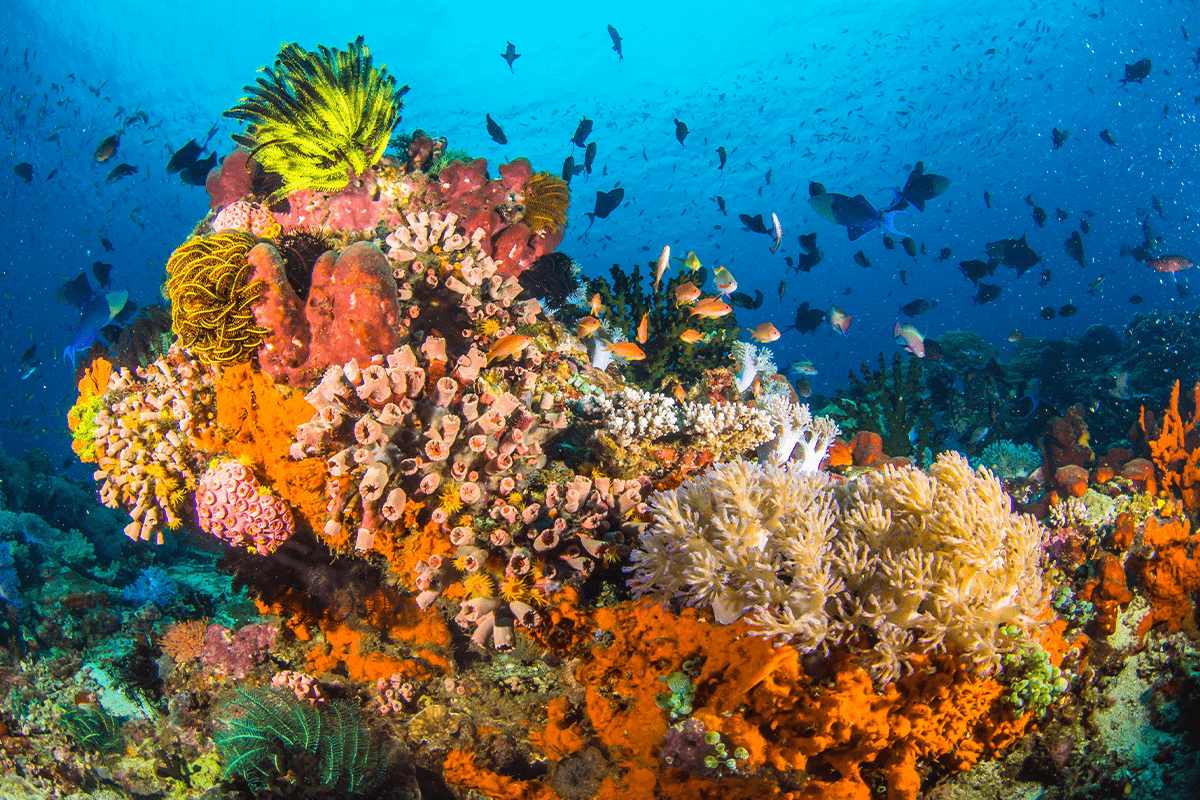Blue carbon solutions are promising opportunities for conservation and carbon abatement in oceans and coasts. The oceans and coasts play a critical role in regulating the Earth's climate, absorbing around 40% of the carbon emitted by human activities since 1850. However, these systems are under pressure due to atmospheric and marine warming, habitat destruction, pollution, and overfishing. The destruction of these ecosystems is devastating.

Established blue carbon solutions
Established blue carbon solutions offer carbon reduction by protecting and restoring mangroves, salt marshes, and seagrass meadows. These ecosystems act as deep carbon reservoirs, absorbing and sequestering greenhouse gases through the carbon cycle.
These solutions offer scientifically verifiable levels of carbon abatement, making them amenable to funding through carbon markets. If fully implemented, the established solutions would offer 0.4 to 1.2 gigatonnes (Gt) of annual carbon dioxide (CO2) reduction, or between 1% and 3% of total current annual emissions.
Read more about: What are blue carbon projects?
Emerging blue carbon solutions
Emerging blue carbon solutions focus on protecting, restoring, and extending seaweed forests and implementing strategies to reduce bottom trawling. These solutions are still in the early stages of research, but there is an existing body of peer-reviewed research that quantifies their CO2 abatement potential. The potential of these solutions is significant, sequestering approximately 3 Gt of CO2 annually, about 7% of total current annual emissions if fully confirmed and implemented.
Nascent blue carbon solutions
Nascent blue carbon solutions are the most challenging in understanding impacts, establishing permanence, and proving the vital concept of additionality. They focus on the protection or restoration of marine fauna populations and reef-based solutions. The science around quantification is still uncertain, so these solutions are not yet financeable through carbon markets. However, these solutions could add another 1 to 2 Gt of additional CO2 annual abatement potential in the longer term.
Ecosystem benefits
In addition to the climate case for blue carbon solutions, there are significant ecosystem benefits. For example, as mangroves recover, fish and marine fauna populations will expand, supporting both fisheries and nature-based tourism. Healthy reefs may contribute to carbon sequestration through their support for a range of organisms and shellfish. Blue carbon solutions are particularly rich in co-benefits beyond their abatement profiles, making them an attractive option for corporations.
Challenges and opportunities
Despite their potential, blue carbon solutions face significant hurdles, including scientific uncertainty, complex or opaque coastal and marine law, and practical challenges to implementation. Financial, practical, and legal hurdles must be overcome to scale up blue carbon projects. However, there are opportunities for financial institutions, companies, project leads, and governments to support the development of blue carbon solutions. These solutions merit serious consideration across financial markets, corporations, and governments.
 Picture of colourful reefs from Anilao, Philippines.
Picture of colourful reefs from Anilao, Philippines.
Conclusion
Blue carbon solutions offer a promising opportunity for conservation and carbon abatement in oceans and coasts. Established, emerging, and nascent blue carbon solutions can contribute to reducing global carbon emissions while providing significant ecosystem benefits. Although there are challenges to scaling up blue carbon projects, there are opportunities for financial institutions, companies, project leads, and governments to support the development of blue carbon solutions.
Check out DGB’s nature-based projects


